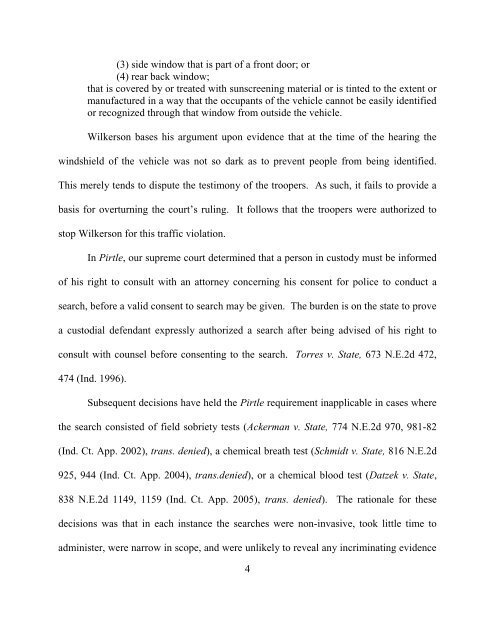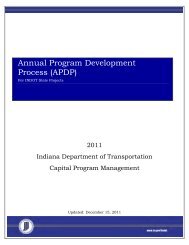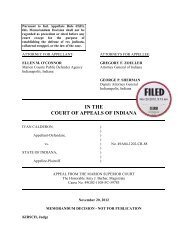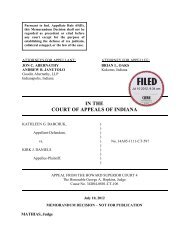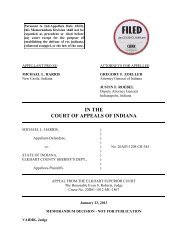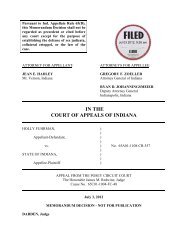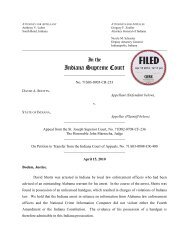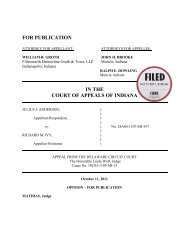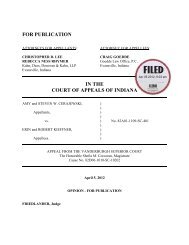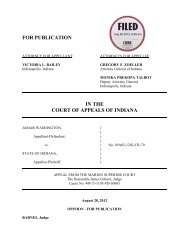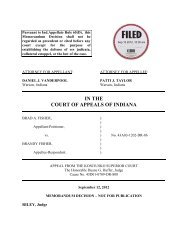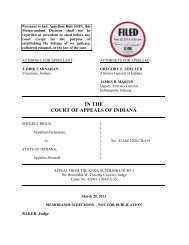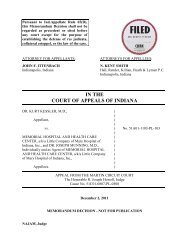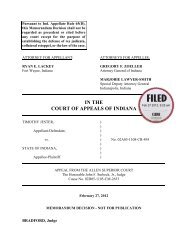Gerald L. Wilkerson v. State of Indiana
Gerald L. Wilkerson v. State of Indiana
Gerald L. Wilkerson v. State of Indiana
You also want an ePaper? Increase the reach of your titles
YUMPU automatically turns print PDFs into web optimized ePapers that Google loves.
(3) side window that is part <strong>of</strong> a front door; or<br />
(4) rear back window;<br />
that is covered by or treated with sunscreening material or is tinted to the extent or<br />
manufactured in a way that the occupants <strong>of</strong> the vehicle cannot be easily identified<br />
or recognized through that window from outside the vehicle.<br />
<strong>Wilkerson</strong> bases his argument upon evidence that at the time <strong>of</strong> the hearing the<br />
windshield <strong>of</strong> the vehicle was not so dark as to prevent people from being identified.<br />
This merely tends to dispute the testimony <strong>of</strong> the troopers. As such, it fails to provide a<br />
basis for overturning the court’s ruling. It follows that the troopers were authorized to<br />
stop <strong>Wilkerson</strong> for this traffic violation.<br />
In Pirtle, our supreme court determined that a person in custody must be informed<br />
<strong>of</strong> his right to consult with an attorney concerning his consent for police to conduct a<br />
search, before a valid consent to search may be given. The burden is on the state to prove<br />
a custodial defendant expressly authorized a search after being advised <strong>of</strong> his right to<br />
consult with counsel before consenting to the search. Torres v. <strong>State</strong>, 673 N.E.2d 472,<br />
474 (Ind. 1996).<br />
Subsequent decisions have held the Pirtle requirement inapplicable in cases where<br />
the search consisted <strong>of</strong> field sobriety tests (Ackerman v. <strong>State</strong>, 774 N.E.2d 970, 981-82<br />
(Ind. Ct. App. 2002), trans. denied), a chemical breath test (Schmidt v. <strong>State</strong>, 816 N.E.2d<br />
925, 944 (Ind. Ct. App. 2004), trans.denied), or a chemical blood test (Datzek v. <strong>State</strong>,<br />
838 N.E.2d 1149, 1159 (Ind. Ct. App. 2005), trans. denied). The rationale for these<br />
decisions was that in each instance the searches were non-invasive, took little time to<br />
administer, were narrow in scope, and were unlikely to reveal any incriminating evidence<br />
4


